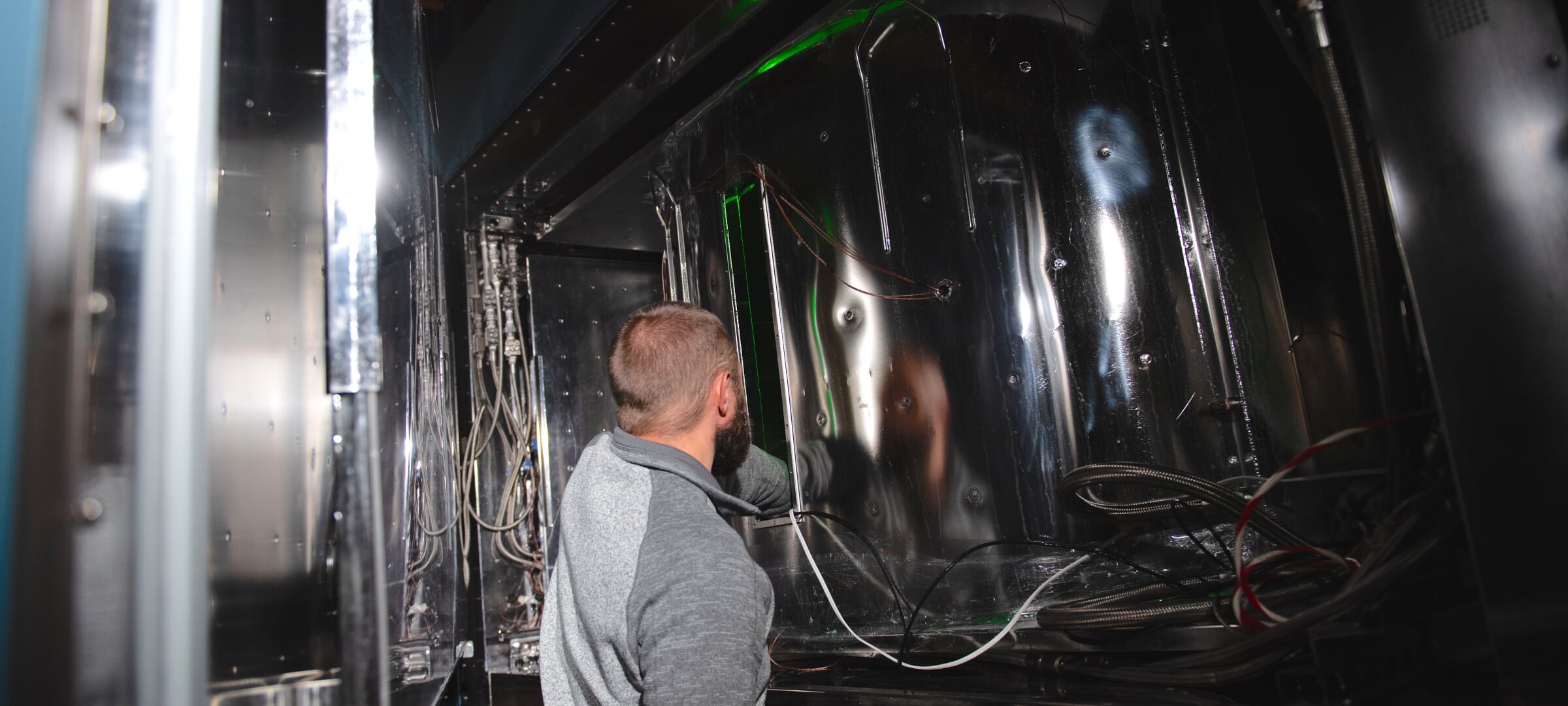Pursue Your PhD in Atmospheric Sciences at Michigan Tech
Are you ready to tackle some of the most pressing challenges in climate, air quality, and atmospheric dynamics? At Michigan Technological University, our PhD program in Atmospheric Sciences equips you with unparalleled research opportunities, advanced analytical tools, and interdisciplinary expertise to make a real impact.
- Address Critical Global Issues – Study the effects of climate change, air pollution, and atmospheric transport to advance solutions for a healthier planet.
- Explore Atmosphere-Earth Interactions – Investigate how the atmosphere interacts with the biosphere, hydrosphere, and solid Earth to drive environmental change.
- Master the Physics and Chemistry of the Atmosphere – Uncover the fundamental processes that influence atmospheric behavior, human activities, and solar interactions.
- Develop Advanced Analytical and Numerical Tools – Utilize state-of-the-art laboratory simulations, field studies, remote sensing, and computational modeling to explore complex atmospheric phenomena.
Areas of Emphasis
Atmospheric Sciences at Michigan Tech emphasizes research on:
- The Perturbed Atmosphere, Air Quality, Climate, and Society—to improve our understanding of atmospheric processes and impacts related to key issues of societal importance, such as climate change and emissions, transport, and transformation of air pollution.
- Atmospheric Interactions—to understand the natural and perturbed atmosphere and its interactions with the rest of the earth system, including the biosphere, hydrosphere, and solid Earth.
- Physics and Chemistry of the Atmosphere—to learn new fundamental physical and chemical processes that govern the behavior of the atmosphere and its interactions with human activities, solar radiation, and the natural world.
- Advanced Analytical and Numerical Tools—to develop and apply new methods for laboratory simulations, measurement, and analysis of atmospheric properties (using in-situ lab, field, and remote-sensing techniques) and using computer simulations of atmospheric transport, microphysics, and chemistry to study complex atmospheric properties and interactions—from micro- to macro-scale.
Access World-Class Facilities
Born from a highly research-driven faculty, our program provides students access to unique, state-of-the-art facilities, including:
- Cloud Chamber - study cloud microphysics and atmospheric processes in a controlled environment
- MCFF - Leverage advanced microscopy and materials analysis for atmospheric research
- Pico Mountain Observatory - conduct remote atmospheric research at this high-altitude station.
- Highly instrumented laboratories and computational facilities across campus including:
- mass spectrometers
- optical spectrometers
- differential absorption spectrometers
- holographic cloud particle systems
- several specific aerosol and gases analysis and monitoring instrumentation
- high-performance computing facilities
Join a dynamic research community that is pushing the boundaries of atmospheric science. Elevate your expertise. Expand your impact.
University Requirements
The program is strongly focused on research with core coursework that focuses on fundamentals and with broad flexibility in elective courses. Students have often the opportunity to work through research assistantships.
Qualifying Examination
Each student must pass the Qualifying, or Comprehensive, Examination within two years of enrolling in the program. This examination will cover the topics covered in the core courses ATM 5515 and ATM 5640.
The Qualifying Examination will be given in the spring semester of each year. Passing the Comprehensive Examination elevates the student to the status of Doctoral Candidate. Students who do not pass the Qualifying Examination will be allowed a second attempt. Students who do not pass the exam on the second attempt are dropped from the program and may apply to a suitable M.S. program (e.g., within their home department).
Advisory Committee
A student’s advisory committee will consist of at least four members of the graduate faculty. At least one of these faculty members will be from outside the student's administrative home department or school.
Research Proposal Defense
The Research Proposal Defense, or Preliminary Examination, is a written and oral description and defense of the research plan made by the student to his/her Advisory Committee. The proposal should be made within one year of achieving Doctoral Candidacy. The student's advisory committee must agree that the research plan is acceptable. The Chairperson will be notified of the outcome of the Dissertation Proposal. The oral proposal is open to the University community.
Doctoral Dissertation and Final Oral Examination
The research conducted by the student will be presented to the Advisory Committee as a written dissertation. An oral presentation of that dissertation will be made following the completion of the written work. The dissertation is acceptable and the oral examination passed if no more than one member of the Advisory Committee dissents. The oral defense is open to the University community.
Curriculum
Course requirements are designed to ensure that all students have a firm understanding of the fundamentals of atmospheric science, including the principles underlying atmospheric structure, atmospheric dynamics, and atmospheric chemistry.
Required Core Courses
Each Fall Semester all students in the program will enroll in ATM 5100 Atmospheric Sciences Research Discussion.
Core Courses
The Atmospheric Sciences Program offers several courses, including the two core courses covering fundamentals of atmospheric sciences, a research discussion course, a special topics course offered on-demand, several electives courses, and doctoral research credits. This ensures that students will be able to complete the core courses and be prepared to take the Comprehensive Examination by the end of their second year.
Electives
In addition, each student will take at least nine credits of elective courses, selected in consultation with the research advisor, to obtain additional depth and/or breadth. A grade of B or higher is required for all required. At least one should be in Atmospheric Sciences electives listed below The other two can be Atmospheric Sciences or from any relevant field as approved by the Doctoral Advisory Committee.
